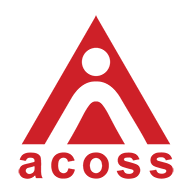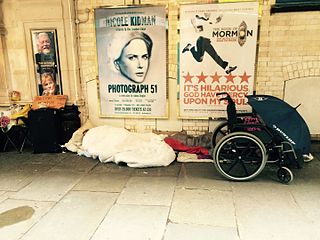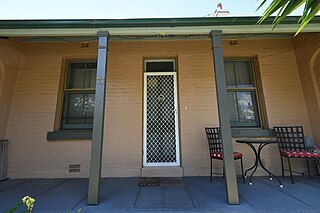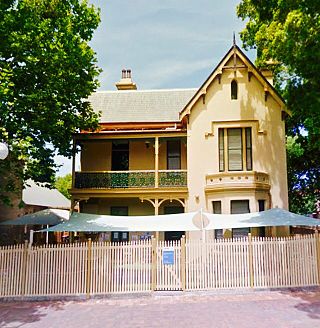Related Research Articles
Samaritans is a registered charity aimed at providing emotional support to anyone in emotional distress, struggling to cope or at risk of suicide throughout the United Kingdom and the Republic of Ireland, often through its telephone helpline. Its name derives from the biblical Parable of the Good Samaritan although the organisation itself is not religious.
Wesley Mission is a name used by three independent Uniting Church groups which are a part of the Uniting Missions Network of UnitingCare Australia. These predominantly grew out of inner city Central Methodist Missions of the Methodist Church of Australasia. Most of the Methodist City Missions of that era later joined together to form Mission Australia.
Mission Australia is a national Christian charity that provides a range of community services throughout Australia. It has its roots in the Brisbane sector of The British and Foreign Bible Society’s sub-committee, The Colporteur Society (1869), and Sydney City Mission (1862), but was only officially established in 1996, bringing together a number of city missions across the country. The organisation specialises in the areas of homelessness and housing, families and children, early learning, youth, employment and skills, substance abuse, disability, mental health, and strengthening communities. Sharon Callister has been CEO since March 2022.

The Australian Council of Social Service (ACOSS) is an Australian organisation that advocates for action to reduce poverty and inequality, and is the peak body for the community services sector in Australia. It was formed in 1956.

Akt is a voluntary organisation based in England, created in 1989 to serve lesbian, gay, bisexual and transgender (LGBTQ+) young people who are homeless or living in a hostile environment. It started in Greater Manchester in 1989 and opened in London in 1996, and expanded to Newcastle in 2013, Newcastle upon Tyne and Bristol.

Homelessness in Australia is a social issue concerning the number of people in Australia that are considered to be homeless. There are no internationally agreed upon definitions of homelessness, making it difficult to compare levels of homelessness across countries. A majority of people experiencing homelessness long-term in Australia are found in the large cities of Sydney, Melbourne, Brisbane and Perth. It is estimated that on any given night approximately 116,000 people will be homeless and many more are living in insecure housing, "one step away from being homeless". A person who does not obtain any shelter is often described as sleeping 'rough'.

In England, local authorities have duties to homeless people under Part VII of the Housing Act 1996 as amended by the Homelessness Act 2002. There are five hurdles which a homeless person must overcome in order to qualify as statutory homeless. If an applicant only meets the first three of these tests Councils still have a duty to provide interim accommodation. However an applicant must satisfy all five for a Council to have to give an applicant "reasonable preference" on the social housing register. Even if a person passes these five tests councils have the ability to use the private rented sector to end their duty to a homeless person.

Homelessness in the United Kingdom is measured and responded to in differing ways in England, Scotland, Wales and Northern Ireland, but affects people living in every part of the UK's constituent countries.

The Elsie Refuge for women and children was a women's refuge set up in Glebe, Sydney in 1974. The project was the beginning of the NSW Women's Refuge Movement that responded to the needs of women and children escaping domestic violence by providing access to specialist accommodation and support services operating within a feminist framework.
Crisis accommodation is housing provided to people experiencing temporary or ongoing conditions of mental or physical health challenges. It aims to remove them from an otherwise harmful environment and allowing them to improve their situations from a safe and stable environment. Situations that may be alleviated through crisis accommodation include but are not limited to homelessness, domestic violence, elder abuse, and child abuse. Crisis accommodation is typically provided through government organisations, not-for-profit organisations and charities. Crisis accommodation is also known as housing subsidies in other words. Crisis accommodation is provided everywhere around the world across various countries. There are other factors such as availability of the services and reasons like poverty and accumulation of debt that affect homelessness which needs to be taken into account in order to solve it as more people tend to look for urgent support when they are facing this crisis.
Youth Off The Streets is an Australian non-denominational not-for-profit youth organisation. The organisation works with young people and their families and communities in an endeavour to create safety, offer support and provide opportunities to build a positive future.

Caretakers Cottage is an Australian non-profit, non-governmental organisation based in Sydney assisting children and young adults facing homelessness. Caretakers Cottage is funded by the New South Wales Department of Family and Community Services to provide services for young people across Sydney's South-Eastern district. Services include short-term, emergency accommodation, semi-independent living options, case support and early intervention for young people at risk of homelessness.
Laurence Charles Matthews, founded Caretakers Cottage a youth homelessness service in Sydney, Australia and currently serves as CEO. Laurie was also a founding member Yfoundations, a peak body organisation for youth homelessness in New South Wales. and has served on the Yfoundations board for a number of years between 1989 and 2011.
Southern Youth and Family Services (SYFS) is a non-profit organisation which operates a number of youth homelessness programs in regional New South Wales, Australia. Among the organisation's program is a crisis youth refuge in Wollongong, a youth and family centre in Warilla, as well as the Resourcing Adolescents to Gain Essentials Scheme (RAGE) in Nowra which provides material/financial support for bond, moving expenses, travel, financial support, detox and rehab.
Coast Shelter is a non-profit organisation supporting homeless young people, adults and women and children experiencing domestic & family violence in the Central Coast region of New South Wales, Australia. Coast Shelter is the largest regional Specialist Homelessness Service in NSW and provides a range of accommodation and other services to those experiencing hardship in the local community.
Detour House is a non-profit organisation servicing homeless and other at-risk girls and women, based in Sydney, Australia. Detour House also incorporates The Girls Refuge, a crisis accommodation service for homeless girls.
Toora Women is an Australian non-profit, non-governmental organisation based in the Australian Capital Territory assisting women and children facing homelessness. Toora Women is funded by the Australian Government and the ACT Government to provide homelessness and substance abuse services for women across the Australian Capital Territory. Services include short-term, emergency accommodation, long-term accommodation, case support and rehabilitation.
Jewish House is an Australian-Jewish non-profit organisation assisting homeless people. It is based in the Eastern Suburbs of Sydney. The organisation was founded in 1986 by local businessmen Roger and Anthony Clifford. The Clifford brothers established the crisis centre to respond to the needs of those community members struggling with substance abuse issues.
The NSW Women's Refuge Movement began in 1974 with the establishment of Elsie Refuge in Glebe, NSW. Other refuges were established throughout the 1970s, operating within a feminist framework and responding to the needs of women and children escaping domestic violence. At first, the refuges were developed through volunteer effort and without government funding. Gradually the government took over funding of the refuges, with the states funding the buildings and the federal government funding the running costs. The NSW Women's Refuge Movement continued to provide services to women with diverse needs and to raise awareness about domestic violence.
Jenny's Place was established in 1977 and was the first women's refuge in New South Wales' Newcastle region. The establishment of Jenny's Place was integral in the response to the recognised need for feminist housing and crisis services for women and children escaping domestic and family violence, part of the original New South Wales Refuge Movement. It was one of the earliest refuges to open following that of Elsie Refuge, Bonnie Women's Refuge and Marrickville Women's Refuge. Today, the refuge continues to operate as Jenny's Place Inc., and is a registered public benevolent charity.
References
- 1 2 "Our History - Samaritans - Newcastle & NSW".
- ↑ Sharp, Cassandra (26 October 2016). "Bean counters on the money with ways to help youth".
- ↑ Patty, Anna (6 December 2015). "Homeless domestic abuse survivor awarded for volunteering effort".
- ↑ Seldowitz, Dovi. Youth Refuge Directory: NSW Specialist Homelessness Services – Crisis Accommodation (2016 Edition). Caretakers Cottage. 2016.
- ↑ "Regional Women's Refuges Are Being Ripped Apart". 23 March 2015.
- ↑ "Samaritans appoints new CEO". 7 December 2015.